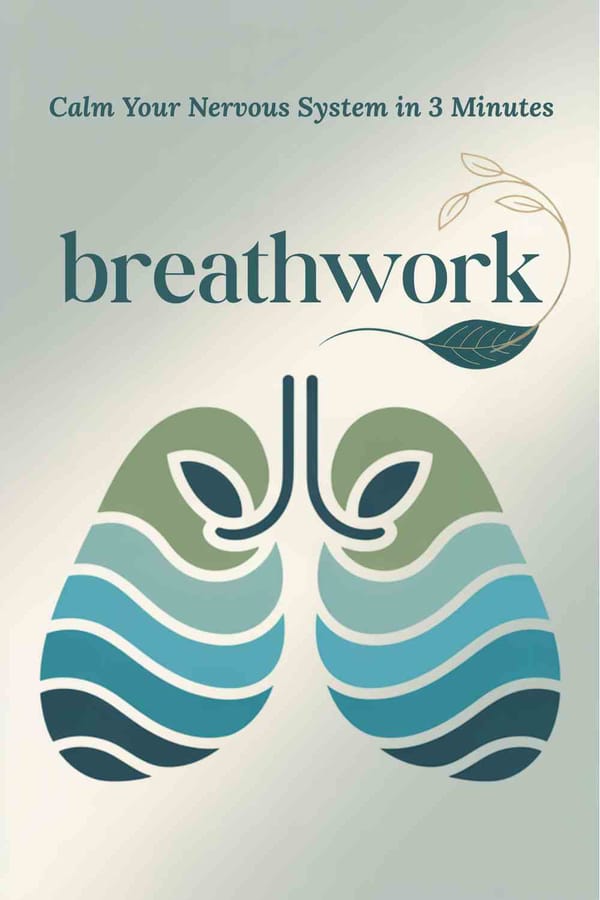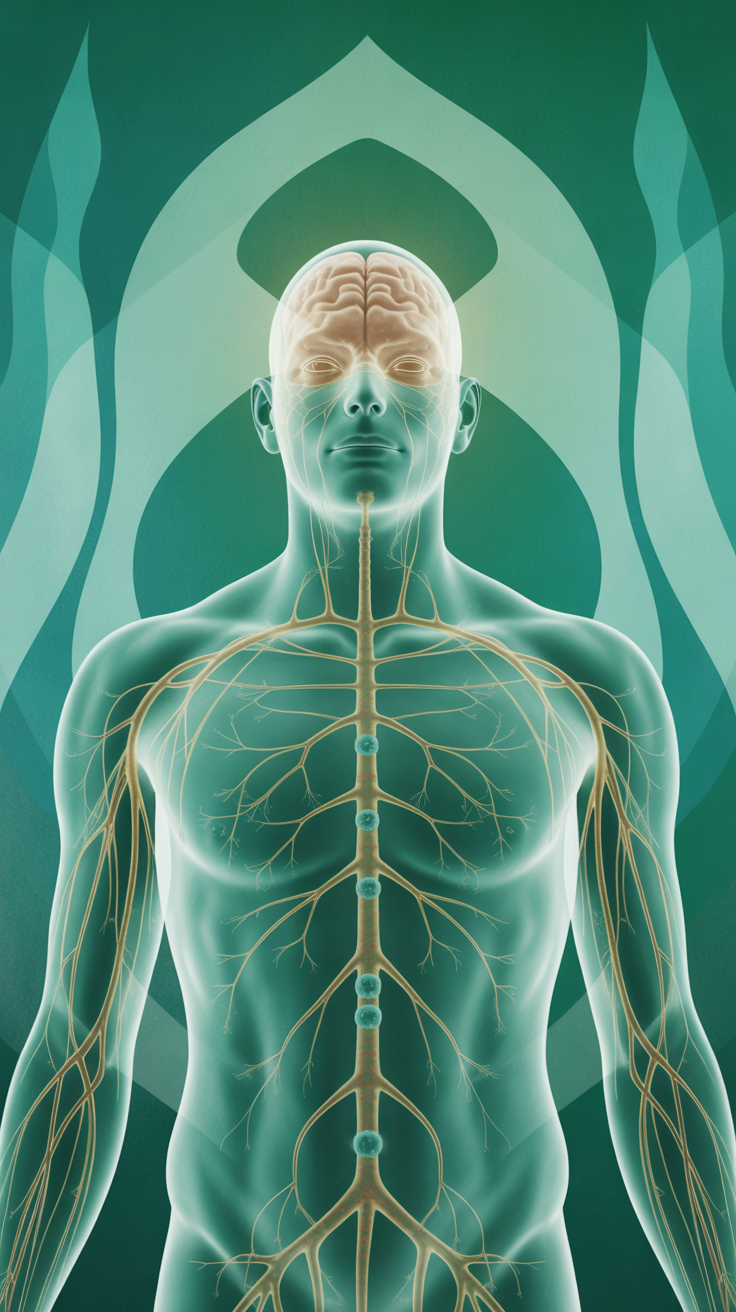Melatonin’s Not Just Tucking You In—She’s Saving the Day

You’ve been using melatonin like it’s NyQuil-lite. Turns out, she’s more of a full-body repair crew with a quiet personality.”
For most people, melatonin is the thing you reach for when you're desperate for sleep on a Sunday night. It sits in your supplement drawer somewhere between the vitamin D and the expired bottle of probiotics you meant to finish two summers ago. But melatonin has a lot more going on behind the scenes than she lets on.
This isn’t just a sleep aid. It’s a multitasking hormone with antioxidant powers, anti-inflammatory magic, and immune-supporting brilliance that most people are completely unaware of. And in higher doses? Melatonin becomes a low-cost, over-the-counter powerhouse that researchers are quietly exploring for everything from chronic inflammation to brain health, immune resilience, and even viral recovery.
So if you’re still taking 1 to 3 milligrams and calling it a night, you’re just scratching the surface.
What Melatonin Really Is (And Why It Matters)
Melatonin is a hormone made by the pineal gland, triggered by darkness, and deeply connected to your circadian rhythm. But beyond regulating your sleep cycle, melatonin plays a major role in maintaining healthy cellular function, especially when it comes to protecting your mitochondria—the part of your cells that make energy.
It also acts as a powerful antioxidant, fighting oxidative stress throughout your body. And unlike most antioxidants that work in one area, melatonin is both water- and fat-soluble, meaning it can move throughout your entire system and protect cells in ways others can’t.
Your gut makes it. Your brain makes it. And your immune system relies on it.
Why Should the Average Person Care?
You might be thinking, "Cool, but I’m not dealing with any major health issues. Do I really need more melatonin?"
Here’s the thing: even if you’re relatively healthy, modern life is a dumpster fire of stress, blue light exposure, late-night scrolling, poor sleep hygiene, inflammation, and immune dysfunction. That combo drains your melatonin stores faster than your phone battery drops during a FaceTime call in bad signal.
Using melatonin beyond sleep support could:
- Reduce brain fog
- Support gut healing (yep, there are melatonin receptors in your GI tract)
- Help modulate your immune response
- Protect against chronic inflammation
- Promote cellular repair and reduce oxidative damage
In other words: more energy, better focus, stronger immune defense, and yes—still great sleep.
So What’s the Deal with High Doses?
Here’s where it gets juicy. Typical supplements give you 1–5 mg of melatonin. But studies are now exploring doses as high as 20, 50, even 200 mg per day for deeper systemic effects.
Before you panic, no—you don’t need to start with 100 mg. But for non-cancer use, many people experiment with higher doses (10–40 mg at night) and report improved deep sleep, better recovery, less inflammation, and an overall sense of calm that isn’t just about sleep.
This isn’t medical advice—but it is worth exploring. Always start low and increase slowly.
Dosing Breakdown (For Non-Cancer Use)
🛌 Better Sleep + Circadian Support
- 0.5–5 mg about 30–60 minutes before bed
- Lower doses often work better than higher ones for circadian reset
🔥 Inflammation, Brain Fog, Recovery
- 10–40 mg at night
- Helps calm nervous system, reduce oxidative stress, and modulate immune response
🧠 Neuroprotection + Anti-Aging
- 20–60 mg nightly
- Early studies suggest neuroprotective benefits and mitochondrial support
Watch for: morning grogginess, vivid dreams, or feeling "too tired" the next day. Adjust dosage or timing as needed.
Here is the Melatonin I recommend
But Won’t High Doses Mess With My Natural Production?
This is a fair concern—and a common myth. The fear is that taking melatonin long-term in higher doses will shut down your body’s own production. But here’s what current research suggests: that’s probably not how it works.
Melatonin production naturally declines with age, stress, and light exposure at night. For many people, supplementation isn’t replacing production—it’s restoring what’s missing. And even at higher doses, there’s no strong evidence showing that it permanently suppresses your pineal gland’s function.
Think of it like topping off a tank that’s already running low—not flooding a full system.
So, does your body stop making it if you supplement? So far, research says probably not. And in a world where most people are deficient due to stress, screens, and disrupted sleep cycles, getting back to baseline might be exactly what your system needs.
Wait... Isn’t That Dose Dangerous?
Not in the way most people think. Melatonin has a very wide safety margin. In fact, studies have used ultra-high doses (1000+ mg) without significant adverse effects. But that doesn’t mean you need to go that route.
High-dose melatonin is still being studied, and everyone responds differently. This is about finding your sweet spot—not maxing out.
Ready to Dig Deeper?
Melatonin might be the most underestimated tool in your supplement drawer. From sleep to cellular defense, it's doing far more than most of us realize. And if you would like a deeper dive into Melatonin then Tier 2 is where we pull back the curtain.
Click through when you're ready. It gets wild—in a good way.
Read the Tier 2 Blog → Melatonin for Inflammation, Brain Fog, and Immune Support: A Deeper Look
Want to Know What It Does in Cancer Protocols?
That’s where things get next-level. In Tier 3, we’ll dive into the emerging research on how high-dose melatonin is being used in integrative cancer strategies—from disrupting tumor growth to reducing treatment side effects.
Click below to keep reading. Things are about to get very interesting.
Read the Tier 3 Blog →Melatonin in the Cancer Protocol: Why This Hormone Is Non-Negotiable
You don’t need more opinions. You need results.
And you won’t find them by only managing symptoms.
But you’re here. You’re asking questions. You’re waking up.
Once you realize the power was in your hands all along,
you stop playing small and start building real health.
Jamie Shahan, MSN, CRNA, RN
Empowering Holistic Health
🌐 Connect with me on Social Media:
Disclaimer
The information provided on this website, in associated blogs, courses, and materials, is for general educational and informational purposes only. It is not medical advice and should not be interpreted as such.
I am not a medical doctor. The content I share reflects my personal opinions, experiences, and research. It is not intended to diagnose, treat, cure, or prevent any disease, condition, or illness.
You should not rely on the information here as a substitute for professional medical care, advice, or treatment. Always consult with a licensed healthcare provider before making any decisions regarding your health, especially if you are pregnant, nursing, taking prescription medications, or managing a medical condition.
By reading this website or using any related materials, you acknowledge and agree that:
- You are fully responsible for your own health decisions.
- The author and publisher of this content assume no liability for any harm, loss, or adverse effects arising directly or indirectly from the use, misuse, or interpretation of the information provided.
- No guarantees are made regarding the outcomes of applying any ideas, suggestions, or protocols discussed. Results will vary for each individual.
Affiliate Disclosure
Some products or tools mentioned may include affiliate links. This means that if you choose to purchase through those links, I may earn a small commission at no extra cost to you. I only recommend products I have personally used, researched, or would recommend to someone I love.
Use at Your Own Risk
By accessing this website and its materials, you agree that you are doing so voluntarily and that you assume full responsibility for any decisions you make regarding your health, lifestyle, or purchases.




